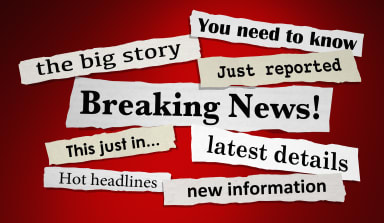Looking to grow your business in the coming year? These eight business improvement ideas can help you get more customers, be more productive, and increase your profits.
Small and midsize businesses (SMBs) face numerous challenges. While roughly 80% of SMBs make it to the first-year mark, only half survive to celebrate their five-year anniversaries. If you want your business to beat the odds, you need to invest significant time and effort into ensuring your company continues to grow. Making improvements to avoid being stagnant is a great place to start.
Keep reading to learn some important actions to consider:
8 Business Improvement Ideas to Grow Your Business
1. Encourage customers to provide reviews of your business
Traditional advertising and marketing efforts only get you so far. Before purchasing a product or service, customers want to know what their peers think of the item in question. In fact, a recent report shows that 92% of shoppers hesitate to buy products without reviews.
If you want your business to stand out from the pack, brainstorm some ways to get satisfied customers to post reviews online. For example, you could:
- Ask for reviews on your website and social media pages.
- Invite clients to submit video testimonials.
- Offer incentives to customers who leave reviews.
Where are potential customers looking for these reviews? Product pages, Yelp, Facebook, Google My Business, and more.
2. Offer flexible scheduling
The best businesses have devoted teams composed of hard-working employees. Whether you employ a dozen workers or just one or two, boost business performance in 2022 by changing the way you relate to your staff.
Even if you can’t afford to give top employees a much-deserved raise, increase their satisfaction and loyalty by offering more job flexibility. For example, you could let them work more convenient hours or enable them to log in from home. While companies are often hesitant about hiring remote workers, a recent Stanford study shows that telecommuters regularly put in a full day’s work or more and are less likely to be distracted than their in-office peers.
3. Look into automation
Small businesses are frequently forced to operate with limited teams. To that end, these companies are in a special position to benefit from automation technology. Referring to systems that operate with minimal human assistance, automation expedites a wide range of business tasks, including:
- Accounting
- Tax prep
- Email marketing
- Social media marketing
- Customer service
As a result, founders have more time to invest in big-picture items like expanding their product lines and finding new markets. If you feel like you’re struggling to do it all on your own, automation could be the answer.
Interested in finance calculator options, see what we recommend: How to Handle Your Business Finance: 17 Useful Calculators
4. Get social
As a small business owner, you probably know that social media offers a valuable opportunity to build your brand and connect with customers. Still, that doesn’t mean you’re using this resource to its fullest advantage.
While many SMBs currently use Facebook, not as many promote their services on Instagram. Depending on the nature of your products and services, you might do better marketing your goods in a more visual environment.
However, it’s not enough to advertise your wares online. Business owners should also talk about their brand on social platforms, sharing mission statements, charitable efforts, and goals for the future. Establish your company as an expert in your field while presenting yourself as the type of business your target audience would feel good about frequenting.
The goal is to stick in social users’ minds, so they think of you the next time they need to make a purchase.
5. Attend an event — or host one
Just because social media has made it possible to connect with customers and connections online doesn’t mean you should stop trying to network in person. From town and city events to business seminars, networking events are a great way to build relationships with others in your field.
You might even be able to partner with a related company in order to cross-promote each other’s services. Struggling to find a relevant event in your area? Consider hosting your own networking event or open house, so customers can get to know you and your business.
6. Reward loyalty
Did you know that finding a new customer costs three times as must as selling to a current one? If you want to build your business while boosting profits in 2022, make customer loyalty a top priority. While there’s no one way to keep customers engaged, small businesses can earn major brownie points by creating loyalty programs.
For example, think about offering perks and rewards to customers who regularly honor you with their business. You could let your VIPs skip the line, provide them with freebies, or give them early access to sales and deals.
Additionally, many businesses offer stamp cards to repeat customers. For example, a customer who buys 10 cups of coffee might receive the 11th one free. These perks can incentivize clients to choose you over your competition.
RELATED: Customer Retention Strategies to Help Small Businesses Succeed
7. Build your email list
Email marketing is one of the best and most affordable ways of growing your business. If you want to give your SMB an edge in 2022, start by expanding your email marketing list — or building a new one from the ground up. Companies can find new subscribers by including email registration forms on their websites and social media pages. Be sure you’re providing customers with desirable content, so they have a reason to open your emails and newsletters.
You may even want to segment your email list so the most relevant content is going to the appropriate customers. Additionally, you can reward subscribers with perks like ebooks, coupons, and free shipping offers in exchange for signing up.
8. Listen to your customers
When you’ve been in business for years, it’s easy to believe you know what’s going to sell and how to market your products and services. But doing things the same way you always have may not be right going forward.
The products or services you sell may be on the downhill side of their product life cycle. Or there may be a significant number of customers you’re not reaching because your marketing isn’t reaching them or isn’t reaching them at the right time. Perhaps they don’t have time to come into your shop in town.
To find out about issues like these, ask customers and prospects for feedback. Ask what they like, what they don’t like, what else they need, and what would make it easier for them to buy from you. Contact former customers and ask similar questions. The more you learn about customer needs and preferences, the more you’ll be able to grow your business.
Avoid becoming stagnant and continue growing your business with the help of these eight tips. Need more help? Learn more about growing your business today.
RELATED: Change Can Happen and Why Don’t You Want What I Want? The Three Faces of Resistance
Disclaimer: The content on this page is for informational purposes only, and does not constitute legal, tax, or accounting advice. If you have specific questions about any of these topics, seek the counsel of a licensed professional.






